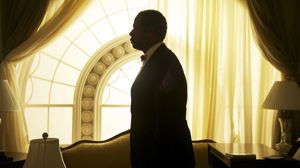You have something of a reputation for your Oscar campaigns. Whether it’s by persistence, determination, or simply spending the most money, you get the job done, transforming movie ducklings into swans ready to step up to the podium and thank god, their agents, and you.
You must have thought you’d have an easy win with Lee Daniels’ The Butler. It has Oscar-bait written all over it: a previously nominated director in Daniels and a worthy subject in the American civil rights movement. The movie’s real-life inspiration – an African-American butler who served eight presidents – had an insider’s view on some of 20th Century America’s most important historical events, and Daniels is able to revel in them. The film has a star-laden cast led by America’s most powerful woman, Oprah Winfrey, and it offers the Academy an embarrassment of riches with which it might reverse its disgraceful lack of minority nominations. You should be able to coast through until the Oscar ceremony, right?
Except this may be an uphill battle. There’s the story, for one thing: your fictional Cecil Gaines has little in common with the real-life Eugene Allen, beyond that they were both White House butlers and both went to a Reagan-era state dinner. Daniels and screenwriter Danny Strong have decided that Cecil Gaines, ably played by Forest Whitaker, needs a tragic childhood to haunt him and an activist son (David Oyelowo) to clash with. Early on, Gaines learns that he must wear two faces: one for his white employers and another for his family and friends. This duality is a powerful idea to explore, but it’s not something so much explored as explained to us, repeatedly, in voiceover.
That voiceover, Harvey! Whitaker has every reason to expect a nomination for his work here, except that his own narration undercuts his performance at every turn, telegraphing his epiphanies and evolution. The other actors fare better. Winfrey tears into her role, not quite dimming her charisma, but never allowing her Oprah-ness to overwhelm. She does her best work in close-ups or acting against Terence Howard as her smarmy neighbour, though struggles mightily to wrestle with a script that has her use the occasion of JFK’s assassination to complain about her husband needing to spend more time at home.
The movie really comes alive in the smaller moments – at house parties, or Gaines joking in the kitchen with the other staff – and I would have loved more of that insider’s view, in the vein of West Wing or Downton Abbey. But there’s always a new presidential impersonation to wonder at. There’s the rebellious son, Louis, turning up to bring to the forefront whatever is going on politically at the moment.
There is one wonderful sequence, of Louis and his fellow activists taking part in a lunch counter sit-in, and the abuse they suffer is intercut with a formal White House dinner; it’s further intercut with scenes of the activists preparing—role-playing, wondering what will happen to them. It’s marvelous both for its energy and the way it conveys just how much work went into the civil rights movement. We feel, both viscerally and intellectually, how hard-won those changes were, and how wide a gulf existed between Cecil Gaines’ two worlds. That’s your Oscar moment right there, Harvey.
(Just make sure you remove the scene in which Louis slams Sidney Poitier from the screener—that’s not something the Academy will forgive.)
See you at awards season,
Erin






